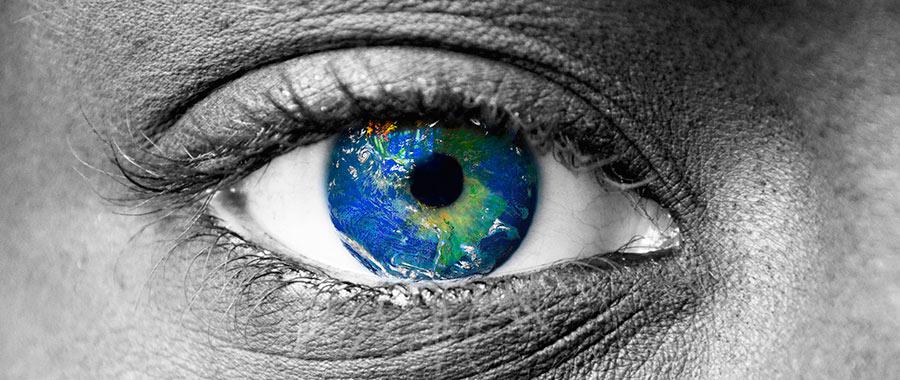In the contemporary world, where individualism often engenders isolation, Bahá’í teachings emerge as a harbinger for cultivating a collective consciousness that transcends the limitations of personal ego. The notion of “Creating a New Consciousness” is emblematic of a profound shift in perception, one that encourages the recognition of interconnectedness among humanity. This theme resonates with a universally felt need for unity in diversity and enhances our understanding of the universal principle of oneness.
Central to the Bahá’í framework is the emphasis on the intrinsic value of every human being. This teaching posits that each person contributes uniquely to the fabric of society. Yet, a common observation prevails: while individuals are perceived as valuable, societal constructs often reinforce separateness rather than foster harmony. This dichotomy invites a deeper examination of why traditional paradigms persist and how they hinder the progression toward a collective consciousness.
The Bahá’í writings articulate a transformative journey—wherein individuals evolve by embracing a higher order of consciousness, marked by virtues such as love, compassion, and justice. The cultivation of these virtues is not merely a personal endeavor; rather, it serves as a linchpin for societal transformation. When individuals embody these qualities, they catalyze a ripple effect, prompting others to transcend conventional boundaries and engage in more meaningful interactions.
As we delve deeper into the Bahá’í perspective on creating a new consciousness, it becomes imperative to understand the foundational principles integral to this ethos. One of the cornerstones is the acceptance of diversity as a source of strength. The Bahá’í framework advocates for the recognition of various backgrounds, cultures, and ideologies as essential elements of the human experience. Rather than enabling division, diversity enriches collective understanding and fosters synergies that lead to innovation and progress.
A commensurate aspect of this new consciousness is the embrace of a global identity. The Bahá’í teachings urge individuals to see beyond the confines of national identities and affiliations. This global perspective is essential in addressing pressing challenges such as climate change, inequality, and conflict. When individuals identify themselves as part of a global community, a moral obligation to address these issues collectively emerges. Consequently, conscious participation in global discourses becomes paramount.
The intersection of spirituality and social consciousness is another significant aspect to consider. Bahá’í teachings intertwine these elements, advocating for a dual approach that involves both spiritual enlightenment and social action. Herein lies a profound realization: personal spiritual development cannot occur in a vacuum. The upliftment of society at large is a reflection of a shared spiritual endeavor. In this light, creating a new consciousness transcends mere intellectual recognition; it demands an active commitment to the well-being of others.
The transformative journey toward a new consciousness also necessitates an examination of biases ingrained in societal structures. In many instances, prevailing stereotypes and prejudices inhibit true understanding and appreciation of one another. The Bahá’í teachings assert the potency of education as a quintessential tool for dismantling these barriers. Educational initiatives that promote critical thinking and moral reasoning equip individuals to recognize and combat these biases, consequently paving the way for a more equitable society.
However, the pathway to a new consciousness is not devoid of challenges. There exists a tendency to cling to existing paradigms—a nostalgic allegiance to the familiar. This resistance often stems from fear of the unknown or an intrinsic reluctance to relinquish entrenched beliefs. Nevertheless, embracing change is a critical component of evolution, both at the individual and societal levels. The Bahá’í perspective encourages the cultivation of resilience and openness, framing these as pivotal attributes in the quest for personal and communal growth.
Moreover, it is crucial to recognize the role of the arts in facilitating this transformative process. Artistic expressions serve as a conduit through which deeper understandings of the human experience can be communicated. They challenge norms, evoke emotions, and inspire dialogue—an essential process in fostering empathy and connection among diverse groups. The Bahá’í teachings celebrate the arts as instrumental in propagating a new consciousness, illustrating how creativity can break barriers and forge unity.
In the grand scheme, the concept of creating a new consciousness extends beyond the mere accumulation of knowledge or superficial engagement with one another. It embodies a holistic synthesis of intellectual, emotional, and spiritual dimensions—a synthesis that calls for authentic relationships rooted in love, trust, and mutual respect. Such relationships are the bedrock of any endeavor aimed at societal transformation.
Ultimately, the quest to create a new consciousness is an invitation to radically reconfigure our interactions and relationships—both with ourselves and with the world around us. It invites inquiry into the deeper reasons for fascination with interconnectedness: the realization that true fulfillment lies in the acknowledgment of our shared humanity. The Bahá’í teachings offer a compass leading toward a future replete with promise, underscoring that through collective efforts, an enlightened and harmonious world is not only achievable but also inevitable.
As we reflect on this journey, let it be clear that the responsibility lies with each individual. By committing to personal growth and social responsibility, we can collectively usher in a new era of consciousness that celebrates unity in diversity, advocates for justice, and fosters an enduring legacy of peace and understanding.
